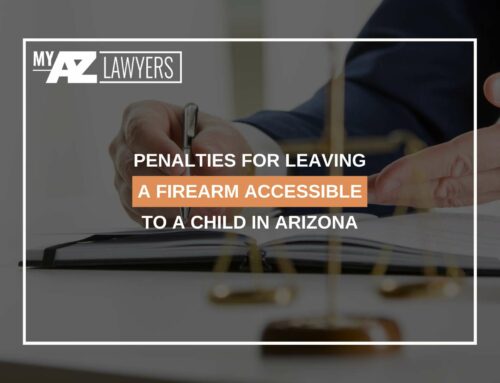Do People in Arizona Have More Strained Family Relationships?
Some Family Law Facts That Suggest They Might
Some of Arizona’s family laws borrow from other states, while many of our laws are unique and may sound strange in other areas. Even after hundreds of years, Arizona is one of the relatively younger states in the nation. Our capital, Phoenix, has topped fastest-growing city lists for decades. Also, while historically a Republican state, you probably know at least two people who moved here from Los Angeles. Arizona is now considered by many to be a “purple” state. After the ordeal that was the 2020 Presidential Election, it’s not hard to imagine that conflicting political views might breed strained family relationships.

Here are some unique facets of Arizona family law that suggest that family relationships here are particularly tense.
-
Community Property
This one isn’t so strange. Eight other states- California, Idaho, Louisiana, Nevada, New Mexico, Texas, Washington, and Wisconsin- divide assets and debts in a divorce using the tenets of community property. The rest of the states use equitable division to split property in a divorce. In Arizona, everything acquired during the marriage is split evenly unless the spouses reach their own settlement agreement or have a prenuptial or postnuptial agreement. This can discourage a primary breadwinner from filing for divorce once they realize that their spouse will be entitled to half of everything, down to their 401(k).
-
Covenant Marriage
Covenant marriage is so uncommon- less than 1% of Arizona marriages are covenant marriages- that many people in Arizona haven’t even heard of it. Covenant marriage is only available in Arizona, Arkansas, and Louisiana. Two spouses seeking a covenant marriage must complete couples counseling and include a special declaration about their relationship in their marriage license application. These spouses will only be granted a divorce under limited circumstances: adultery, incarceration, abandonment, child or spousal abuse, separation with certain time requirements, agreement, and substance abuse and addiction issues. The couple will also likely be required to complete counseling before a divorce is granted, but counseling is generally discouraged in any situation where one or both partners are physically abusive. The divorce rate of spouses in covenant marriages is about 30-50% of those who are in traditional marriages. However, people who choose covenant marriage tend to be more religious and conservative, which already suggests a lower divorce rate. People in covenant marriages report higher levels of communication and satisfaction, and lower levels of violence, than people in traditional marriages- but they only make up a tiny fraction of marriages in Arizona.
-
Arizona Divorce Rates
Arizona consistently reports higher rates of divorce than the national average. Divorce statistics can be confusing as they are measured as the number of divorces per 1,000 people. In 2017, The national average was 2.9 divorces per 1,000 people, but Arizona reported about 3.6 divorces per 1,000 people. That means the rate of divorce in Arizona was about 15% higher than the national average. That number decreased to 3.0 divorces per 1,000 people in 2018, which was the lowest divorce rate our state had reported in decades. Divorce filings tend to increase in August and March, or after summer and winter holidays. Researchers have posited that increased time together and stress from the holidays can create a pressure cooker and increase the likelihood of a spouse filing divorce afterwards. Researchers expect that divorces will drastically increase once the pandemic has officially passed, as quarantine and stay at home orders have forced millions of couples to spend every waking moment together. Many also have the increased burden of homeschooling their children and losing their employment. These conditions create a stressful situation similar to the holidays, except dragged out over many months.
-
Filial Responsibility
You may have never heard of filial responsibility laws, despite 26 states and Puerto Rico having them in place. Arizona is not one of these states. In states with filial responsibility, you may be held financially liable for the expenses of impoverished elderly parents. Many states used to have filial responsibility laws but repealed them after the passage of Medicaid, but the fact of the matter is that the majority of the states have them. Do people in Arizona simply not want to be responsible for their parents? While it’s hard to say how the pandemic has affected this, Arizona typically hosts more than 2 million snowbirds (senior citizens with primary residences in cold states who live in a secondary residence in a warm state for the winter months) per year.
-
True No Fault State
Arizona is a no fault divorce state, meaning that as long as you aren’t in a covenant marriage, you can simply cite “irreconcilable differences” as the cause of divorce on your divorce petition. However, 17 states are “true no fault” states. That means that “irreconcilable differences” is the only option you have on your divorce petition. In Arizona, you can list reasons like abuse, infidelity, substance abuse, cruelty, mental illness, and more for your divorce. Fault divorces are generally more complicated and time-consuming (which also means expensive), but can help if one parent wants to prove the other is abusive and shouldn’t have custody of their children. If you list a reason for your divorce and your spouse doesn’t want to get divorced, they can contest your assertions in court. Most people choose the convenience of citing irreconcilable differences because a divorce will be granted whether the spouse fights it or not.
Arizona, a great State to live and work but your Marriage may Struggle
How long does divorce take in Arizona?
Sometimes marriages don’t work out and divorce is the best alternative. In those cases, many ask, “How long does it take to finalize a contested divorce in Arizona?” On average, an Arizona divorce may take between 90 and 120 days, but many cases stretch out for six months or longer.
In many ways, Arizona is a good state to live in if you have a rocky relationship with your family members. If you have more questions about how Arizona’s family laws will come into play in your family situation, call My Az Lawyers to schedule a free consultation with our law firm today. Our expert Arizona family law attorneys offer skilled counsel at affordable rates, including payment plans built to fit your budget. Before initiating your family law case, schedule a free consultation with one of our attorneys.
Arizona Offices:
Mesa Location:
1731 West Baseline Rd., Suite #100
Mesa, AZ 85202
Office: (480) 448-9800
Email: info@myazlawyers.com
Website: https://myazlawyers.com/
Glendale Location:
20325 N 51st Avenue Suite #134, Building 5
Glendale, AZ 85308
Office: (602) 509-0955
Tucson Location:
2 East Congress St., Suite #900-6A
Tucson, AZ 85701
Office: (520) 441-1450
Avondale Location:
12725 W. Indian School Rd., Ste E, #101
Avondale, AZ 85392
Office: (623) 469-6603













